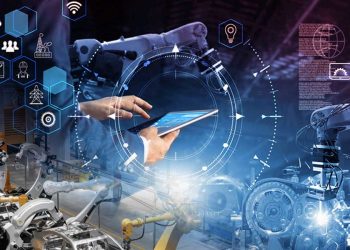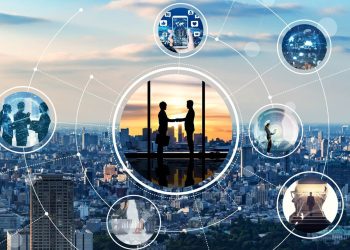For those who are young to remember the television version of Star Trek, you may want to find some old episodes floating on different services that you can subscribe or search. The first glimpses of the internet of things (IoT) were there. Think about the food replicator or the tricorder, or even the badge communicator that evolved from the flip phone style device of the early seasons. Although the Internet was just becoming an invention from different universities working on government projects, the foundation was being laid for all sorts of devices to use a wireless connection to send data back and forth. The young generation that watches those episodes has seen technology fly with new items showing every month. The generation that is now just being born will new things not yet dreamed and think nothing of it.
The challenge with all of these changes comes in different modes. IoT is attacking cultural standards that have existed for decades, if not centuries. IoT is creating disruption in the daily business operations which is now challenging jobs. IoT is creating new paradigms that society may not yet be ready to absorb.
The California Legislature recently passed legislation to prevent computerized software programs known as bots from being able to access and manipulate the growing number of devices that can be connected through the internet. You may ask why is this a concern? If you have your home IoT connected and enabled, these bots can crawl through the internet and suddenly find access to your heating and air conditioning. Then they find their way to your refrigerator that connects to your Amazon Prime account. Now they could potentially capture your credit or debit card account, and away you go. This new law in California will be enacted in January of 2020 that will require manufacturers that produce IoT devices to be equipped with a reasonable security feature or features that can prevent information from being collected, contained, or transmitted without proper authorities. Although the bill is vague in many regards, it is the start of what is needed and may spread to other states in the very near future.
Can being too connected really be that serious of an issue? There are reports coming from some cardiologists that are concerned about these new watches that have ECG capabilities will be creating an increase in emergency room visits through false information. Although approved by the FDA, these single lead devices are available with a variety of quality. Traditional ECG machines provide 12 different leads to draw the data instead of just one. The potential of a false positive which would be telling the user they have a heart attack may be greater than first reported. However, there are better options if you have a cardiology concern. There are garments that have multiple leads that will provide a potentially more accurate result.
When the concept of IoT first appeared in the market, the concepts of convenience, speed, ability to automate processes were all being talked about in the marketing literature. Much of what was said is true. The consumer community was quick to gobble up these devices to help with the ease of their life. The responsibility of the new technology is now starting to be a reality that the consumer must face. How much of your data is worth sharing or gathering. With IoT, the amount of information about your life and lifestyle can be quickly gathered if you wish it to be. When this information is combined with the developing artificial intelligence, there will be few repetitive processes you will need to worry about performing. IoT enabled refrigerators can now detect when you are low on milk and automatically reorder for you. It is projected by 2025, and driverless enable automobiles will be more than 10% of the market. You could have a vehicle in your driveway that will sense your calendar and know to drive your work, school, church, or the airport even before you are in the car.
One need to pay for all of this convenience. Scholars on privacy are already debating the merits of too much data being put into the internet. Educators are having to change what is being taught as new technology is having an impact on how young people are learning. Healthcare professionals see practice patterns and patient demands shift as more can be done outside the office or hospital. Science Fiction writers have already written novels proclaiming how technology and robots will take over humankind. Yet all of this means we have given up over time much of our own personal identity and allowed this to happen.
As technology leaders, we should lead the way of understanding the impact of all this connectivity and sharing of data. We are creating this world. Let’s make sure we control what we create and not be manipulated by our own creations.








